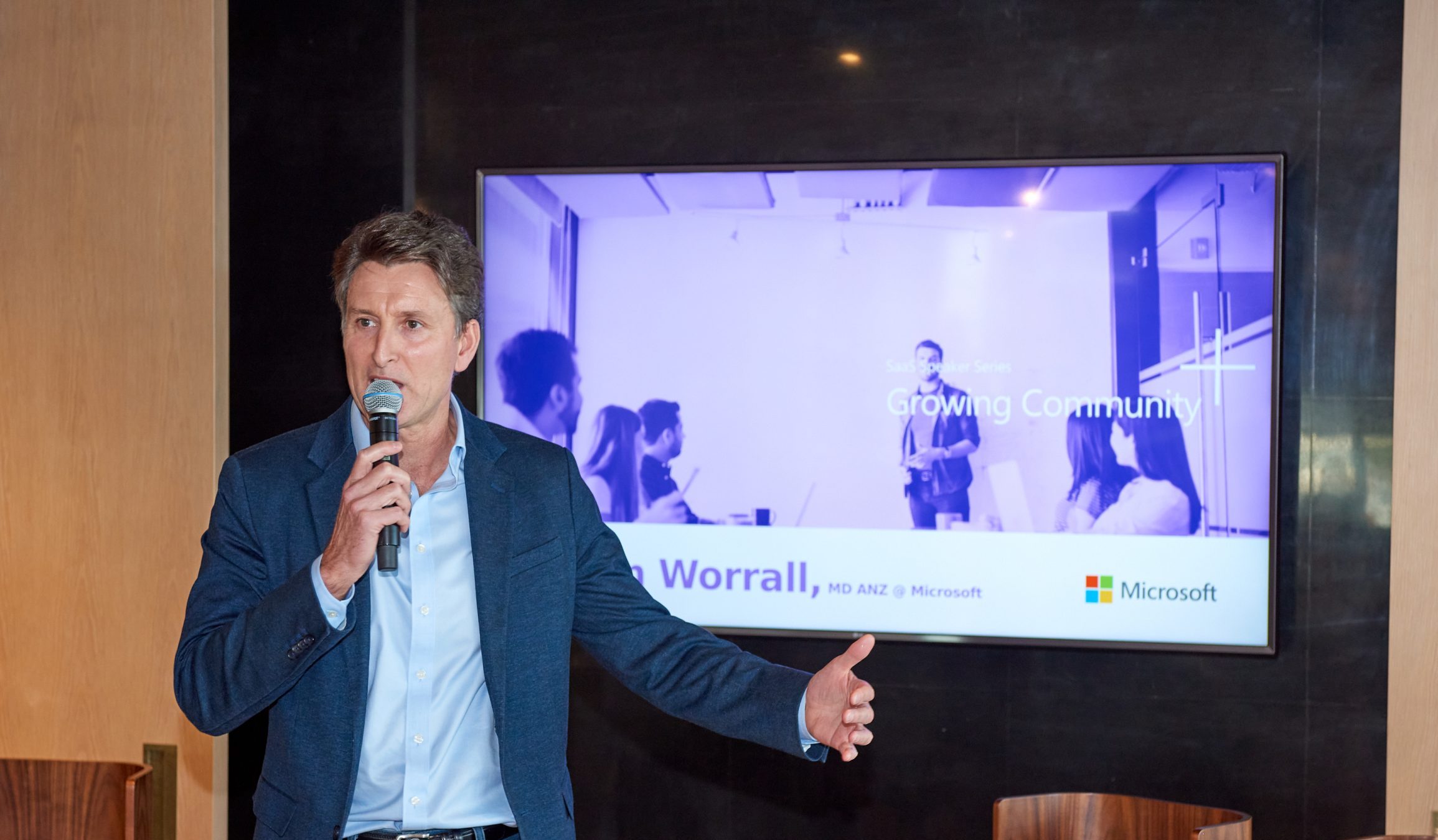New Zealand’s Software-as-a-Service (SaaS) sector has really taken off in the past couple of years, growing at a rate of more than 16 per cent per year. It is on track to be the biggest contributor to GDP, generating more than $20 billion for the New Zealand economy.
And the best way to ensure a prosperous future for the sector is together. As Microsoft ANZ Managing Director, Steven Worrall, said at our recent special event for New Zealand SaaS providers, there’s nothing like coming together to celebrate the work our innovators are doing and learn from each other.
So, what were the key outtakes from this event?
Creating stepping stones to global SaaS success
As countries with much in common, the decision to bring Microsoft Australia and New Zealand together as a distinct global region focused on shared goals makes a lot of sense. Steven sees Australia and New Zealand working more closely together as a way to help more of our partners come together to serve a common customer base and open doors to new opportunities in the market for New Zealand companies.
New Zealand is home to 600 SaaS businesses, with more than 13,000 employees. Across the ditch the demand for tech solutions and expertise is growing on a phenomenal scale, with the number of tech workers expected to more than double from 800,000 to 2.1 million in the next five years. This makes Australia the perfect first stepping stone for Kiwi SaaS businesses with global ambitions.
Steven expressed his excitement at how Microsoft is working to provide more pathways to growth internationally for New Zealand SaaS partners through the Scaling SaaS Exports Initiative, helping make the most of that massive demand. Not only will that grow SaaS businesses on this side of the Tasman, it’s a win-win for the whole region as Kiwis export their innovation to help businesses across ANZ. Meanwhile, Steven was delighted to see programmes such as Founders Hub and #10KWomen building innovation and addressing skills shortages here in Aotearoa. Growing the pie here at home creates stronger foundations for New Zealand to take on the world.
“Think about the stick before the carrot”
However, there’s still a lot of work to do. New Zealand investor Serge Van Dam, who has spent years scaling globally minded SaaS companies, gave a hugely insightful speech that revealed the three main challenges for businesses in the sector.
While the Kiwi SaaS environment is hugely diversified (hence resilient), choosing the right partners is integral to growth and success. Partnerships need to work for both parties and enable mutual growth –they are frequently lopsided.
Serge says that when forming a partnership, you must “think about the stick before you think about the carrot”. In order words, consider what you want to get from the partnership before you think of inviting a partner into a relationship, and then build leverage to make sure you can make this happen.
Serge also believes many SaaS business owners end up exiting from the business because they haven’t focused sufficiently on their own and their company’s leadership skills. In New Zealand, most SaaS leaders are learning as they go, which creates an extremely difficult environment for founders and leaders to develop and think about their leadership talents.
Often what makes a great, creative innovator isn’t always the same as what makes a great at-scale business leader – these skills have to be learned or hired in the form of seasoned operational leaders. While we’re good at “bootstrapping from the ground up”, not investing in leadership generally leads to two outcomes: either leaders struggle to get their team to follow their vision, or their team aren’t empowered to use their own initiative, which stifles innovation. That’s where working with partners such as Microsoft and the broader partner network is so important, enabling businesses to make those connections and learn from each other.
But the biggest issue Serge identified for the whole Kiwi SaaS industry is that people don’t really understand it. He attributes this to an issue of storytelling. People don’t really know what “SaaS” or even “Software-as-a-Service” is and the value it creates, as well as all its many applications across industries and sectors. And as Serge explained, if people don’t get it, they won’t encourage their kids to get into SaaS careers (or aspire to one themselves), exacerbating the ongoing talent shortage the sector is experiencing.
As the demand for SaaS capabilities increases, it’s crucial that understanding of its career opportunities does as well. Kiwi SaaS – the industry’s leading community – is making strides in this area by investing in training programmes to educate and raise the competency in aspiring professionals, as Microsoft does through its outreach to schools through DigiGirlz and other programmes.
Serge encouraged more companies to join KiwiSaaS, creating a broader community and a stronger voice for the industry.
As the inspirational Sian Simpson, founder of Public Rally concluded, start-ups and scaleups should consider harnessing the power of community to create success at scale. While sales and marketing typically focus on short to medium term wins, playing the long game with your community and most engaged users enables many to many sales if done in the right way.
That’s the real lesson for us all. As a partner with the KiwiSaaS community, we’re focused on bringing our community together, delivering practical support that accelerates our collective SaaS growth journey and helping local SaaS providers reach new heights.
Through platforms such as Marketplace, our goal is to smash down the barriers to entering new markets, including costs. The more we work together, the more we all win.
This is truly a time of opportunity for Aotearoa’s SaaS community, and we hope this event inspired everyone who attended to seize this with both hands. A problem shared is a problem halved. By sharing these kinds of insights and coming together on solutions, we won’t just shoot for the moon – we’ll grab it.

